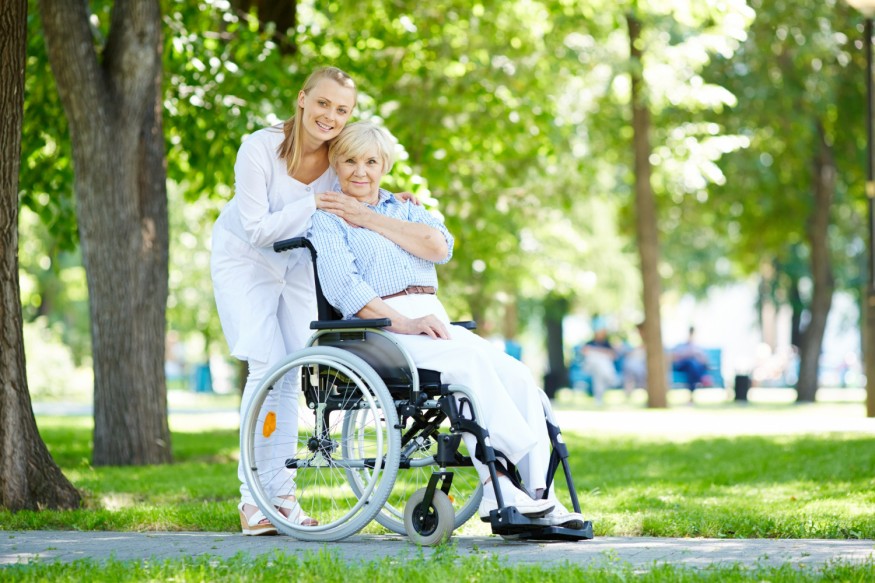
The demand for empathetic and skilled caregivers for older people will continue to increase with the aging of the world population. This is a highly rewarding profession because it allows those practicing it the chance to enhance the quality of seniors' lives significantly. If you're interested in becoming a part of this noble occupation, there are various stages you could go through to fulfill the job as an old person's caretaker.
Understand the Needs of the Elderly
You can't give something you don't have. You can only serve others to the extent that you know how to cater to other peoples' needs. That's why the first step in pursuing a career in aged care is to develop a deep understanding of the unique needs and challenges faced by the elderly population. This includes physical limitations, cognitive impairments, and emotional needs. Gaining this knowledge will equip you with the tools to provide compassionate and effective care.
The growing elderly population is a global phenomenon, and the demand for aged care workers is increasing worldwide. Australia serves as an excellent example of a country facing a significant aging population and a corresponding need for aged care professionals.
This demographic shift has led to a surge in the number of aged care jobs Brisbane and other cities across the country. Careers in this field range from personal care workers and enrolled nurses to registered nurses and allied health professionals, offering diverse opportunities for those seeking to support the elderly.
Explore Educational Pathways
A number of educational options are available based on how well you want to take care of somebody. To start with, you may have to go through a certification program or receive training while working as a care assistant or home health aide because these are meant for new beginners in the field. These programs typically cover topics like basic nursing skills, patient transfer techniques, and communication strategies.
For more advanced roles, such as registered nurses or licensed practical nurses, you'll need to pursue a degree or diploma program. These programs delve deeper into medical knowledge, clinical practices, and specialized care for the elderly.
Gain Practical Experience
While formal education is essential, hands-on experience is invaluable in the field of aged care. Consider volunteering at local nursing homes, assisted living facilities, or community organizations that serve the elderly. This will not only provide you with practical experience but also allow you to develop empathy and communication skills crucial for working with seniors.
Additionally, many educational programs incorporate internships or clinical rotations, allowing you to apply your knowledge in real-world settings under the guidance of experienced professionals.

Develop Essential Soft Skills
Caring for the elderly requires more than just medical knowledge or technical skills. The importance of soft skills like patience, compassion, active listening, and effective communication can't be overemphasized. Emotional challenges often assail the aged, causing them physical and emotional distress. A caregiver's skill in emotion regulation is paramount in defining the elderly's health.
Training, practice, and self-reflection are some of the ways through which one can develop strong soft skills. It's crucial to develop a real desire to learn from the life experiences and perspectives of older adults you take care of in order to make better connections.
Stay Up to Date with Industry Trends
The field of aged care is constantly evolving, with new research, technologies, and best practices emerging regularly. Staying informed about these developments is crucial to providing high-quality care. Attend workshops, seminars, or conferences to network with peers and learn about the latest advancements in the industry.
Additionally, consider joining professional organizations or associations related to aged care. These organizations often offer resources, continuing education opportunities, and networking events to help you stay current and connected with the broader community of caregivers.
Opportunities for Growth and Advancement
The aged care industry offers numerous opportunities for personal and professional growth. As you gain experience, you may have the chance to specialize in areas such as dementia care, palliative care, or rehabilitation services for the elderly. Additionally, there are often pathways for career advancement, allowing you to take on supervisory or management roles within aged care facilities or organizations.
Personal Qualities for Aged Care Workers
Caring for the elderly requires a unique set of personal qualities beyond technical skills and knowledge. Patience, empathy, and a genuine desire to make a positive impact on the lives of seniors are essential traits for aged care workers.
These personal qualities are crucial because working with the elderly often involves navigating complex emotional and physical challenges. Caregivers must be able to provide not only medical assistance but also emotional support, companionship, and a sense of dignity to their elderly patients or clients.
Conclusion
Starting out a profession in elderly care is an honorable path that calls for commitment, empathy, and perpetual learning. Nevertheless, the ability to change positively the life of the aged and offer them good treatment and integrity is more important than anything else.
© 2025 ScienceTimes.com All rights reserved. Do not reproduce without permission. The window to the world of Science Times.










